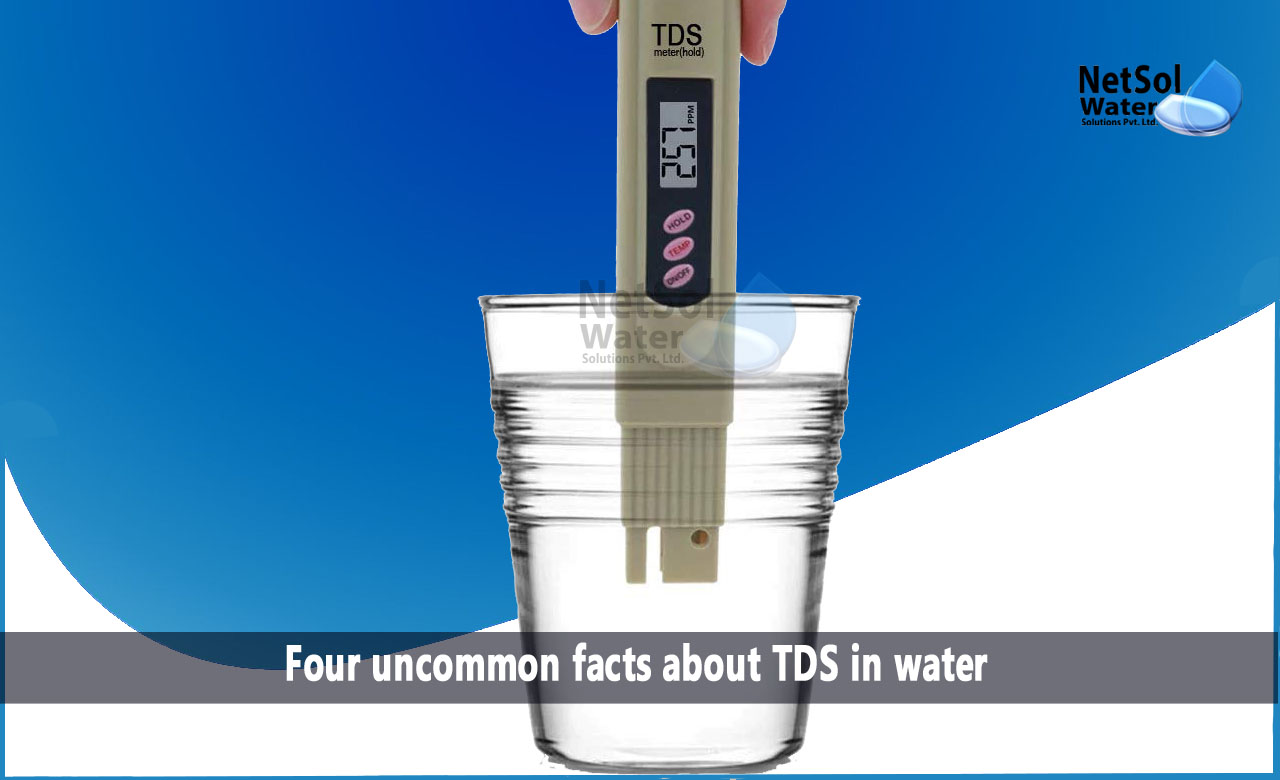TDS refers to Total dissolved solids in water. TDS testers, as their name suggests, let users measure the amount of ionised solids dissolved in a liquid or solution, without having to bother with the hassle of drying the liquid out and weighing the remaining components.
What are the four uncommon facts about TDS in water?
TDS for H2O is zero, indicating that there aren't any electrically charged dissolved substances in pure water. The amount of TDS is determined using an electrical current that monitors EC levels, because ionised solids will increase the electrical conductivity (EC) of water.
In this blog, we've included four lesser-known and uncommon facts about TDS in water.
1. Is TDS beneficial or harmful?
Many people associate TDS with water pollutants like sewage and runoff when they think of toxins in water. TDS, however, is not always harmless or dangerous in nature. The highest amount of TDS permitted in water that is safe to drink, according to the U.S. Environmental Protection Agency (EPA), is 500 parts per million (ppm). But, just because a water sample's TDS value is less than 500 ppm, doesn't imply that it's safe to drink.
TDS testing by itself is unable to identify the elements that are dissolved in water, even though it can measure their quantity. Because to this, TDS testing frequently forms a component of a more thorough water-quality monitoring plan, which also includes measurements of temperature, conductivity, salinity, and pH.
2. TDS testers differ greatly from one another
Not all TDS testers are designed to take into account for materials that are poor conductors, despite the fact that every element that dissolves in water will have an electrical charge. Oils and some pharmaceutical compounds, for example, can be bad electrical conductors.
You might not be getting the whole story if your TDS tester can't pick up on very low EC. Before interpreting TDS findings as "safe," make sure to look into the EC sensitivity of your tester.
3. Hard water can be detected with TDS testers
If you've ever used hard water, which has high levels of minerals like calcium and magnesium, you've used water that has a high TDS level.
Significantly hard water leaves crusty, hard mineral deposits in sinks, toilets, drains, and other places. It can have an unpleasant taste, irritate and dry out the skin, corrode pipelines and water-dependent equipment, clog drains, and make washing clothes more challenging.
4. There are numerous uses for TDS testing
TDS measurement has uses in aquaculture, renewable energy research, hydraulic fracking, food and beverage production, and many other industries. It can be a significant component of scientific, medical, and environmental research.
Conclusion
Netsol Water is one of India's largest water and wastewater management companies. We are focused on the design, production, and delivery of specialized wastewater treatment systems, commercial water treatment products, etc. We manufacture top-of-the-line WWTPs, STPs, WTPs, RO Plants, water softeners, and ETPs that are highly successful at removing pollutants and TDS, from commercial and industrial water and wastewater.
If you're looking for a reputable business to do manufacture and yearly maintenance of your RO Plants and water softeners, go no further than Netsol. We have many years of experience in this industry, and are equipped to handle any task related to water and wastewater treatment. Call us at +91 9650608473 or use our online platform to reach out to us right now.



